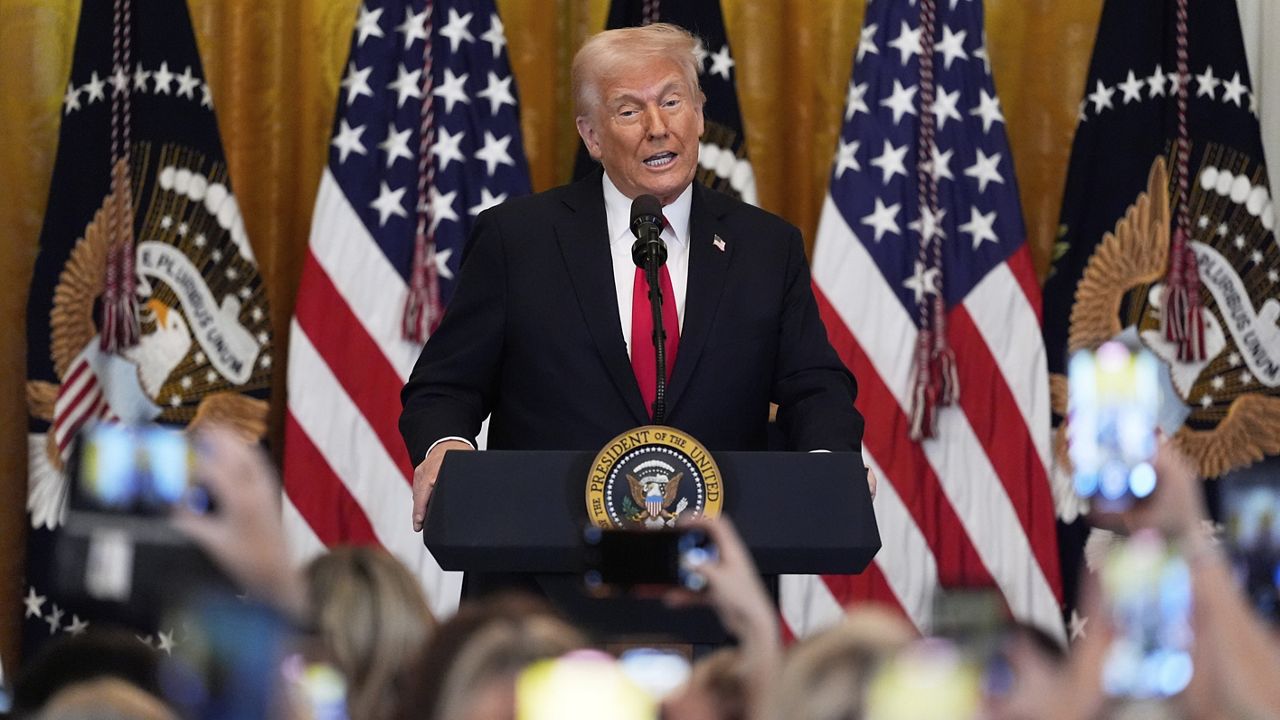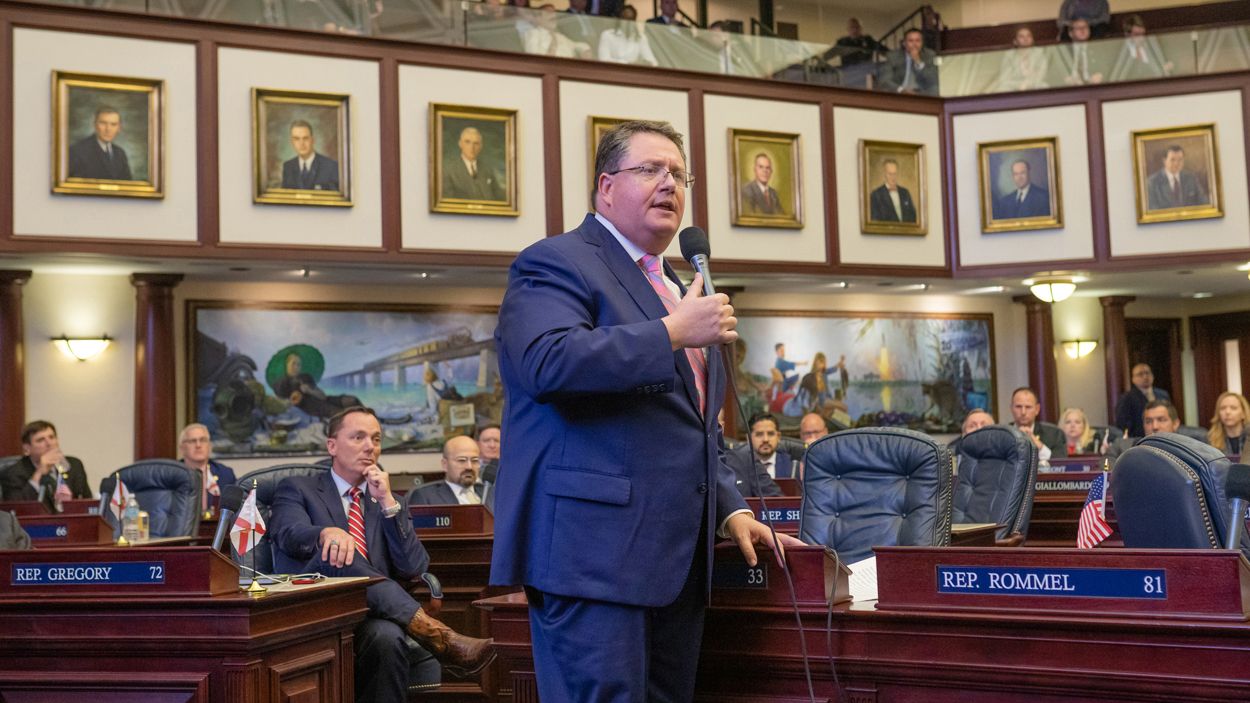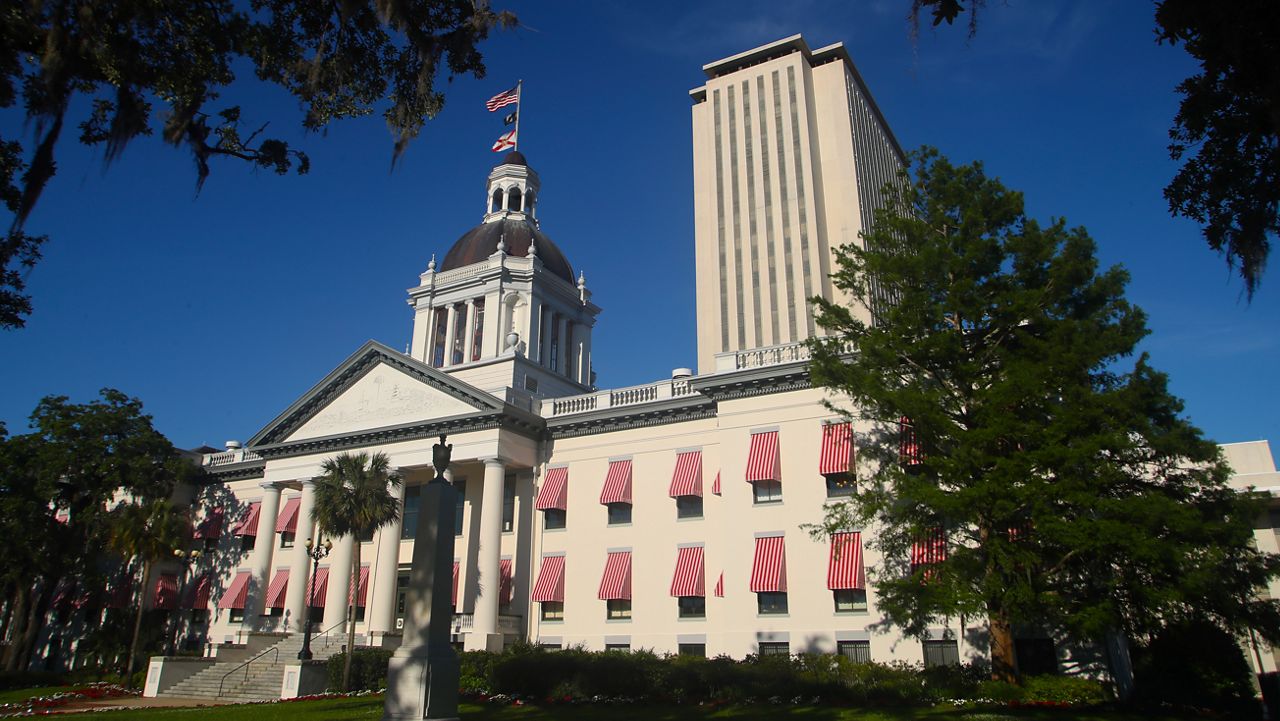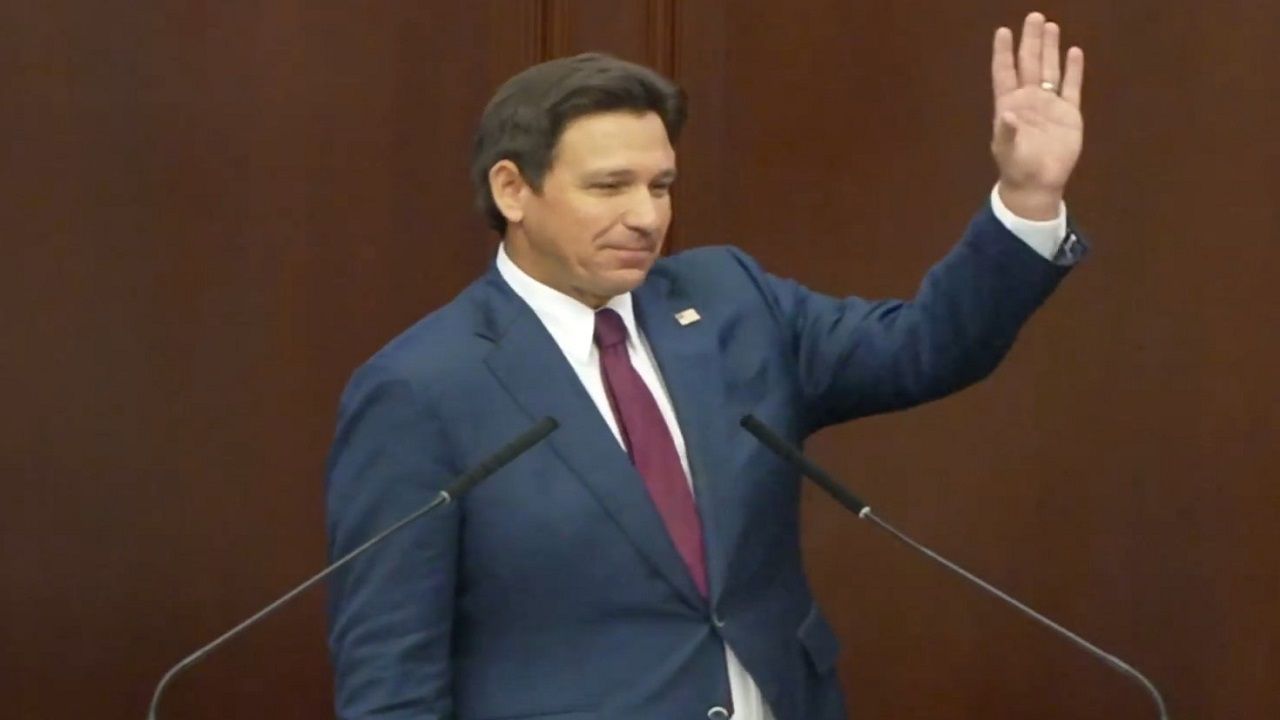President Donald Trump announces his latest tariff policy, and lawmakers in the Florida House advance a proposal to reduce sales taxes in the state.
Trump orders 'reciprocal' tariffs on trade partners around the globe, risking higher costs and trade wars
President Donald Trump ordered the implementation of reciprocal tariffs on nations around the globe Wednesday, bucking concerns from members of his own party and volatile markets to levy import taxes on billions of dollars of products that could raise consumer costs for American households by thousands of dollars a year, at least in the short term.
Trump said at event at the White House's Rose Garden that the move, which will transform U.S. trade relations with trade partners around the globe, comes on “one of the most important days, in my opinion, in American history” and is in response to years of the U.S. being “looted, pillaged, raped, plundered” by other nations, in the president's words.
“It’s our declaration of economic independence. For years, hardworking American citizens were forced to sit on the sidelines as other nations got rich and powerful, much of it at our expense," Trump said at the event after walking out to a backdrop of numerous American flags. "But now it’s our turn to prosper and in so doing use trillions and trillions of dollars to reduce our taxes and pay down our national debt, and it’ll all happen very quickly.”
During his remarks, Trump held up a chart showing the reciprocal tariffs would be roughly half of the rate of tariffs he claims other countries levy on U.S. products, including 34% tariffs on imports from China and 20% tariffs on imports from the European Union. But the White House has offered few details, and it was unclear where the data on the chart came from.
None of the warning signs about a falling stock market or consumer sentiment turning morose has caused the administration to publicly second-guess its strategy. The president has promised that factory jobs will return to the United States as a result of the taxes, but his policies risk causing a sudden economic slowdown as consumers and businesses could face sharp price hikes on cars, clothes and other goods.
The new tariffs, on a day Trump dubbed “Liberation Day,” follow similar recent announcements of 25% taxes on auto imports; levies against China, Canada and Mexico; and expanded trade penalties on steel and aluminum. Trump has also imposed tariffs on countries that import oil from Venezuela and he plans separate import taxes on pharmaceutical drugs, lumber, copper and computer chips.
White House trade adviser Peter Navarro has suggested the new tariffs would raise $600 billion annually, which would be the largest tax increase since World War II. Treasury Secretary Scott Bessent told lawmakers the tariffs would be capped and could be negotiated downward by other countries, according to the office of Rep. Kevin Hern, R-Okla.
Importers would likely pass along some of the cost of the taxes on to consumers. The Budget Lab at Yale University estimates that a 20% universal tariff would cost the average household an additional $3,400 to $4,200.
Most analyses see an economy tarnished by higher prices and stagnation. U.S. economic growth, as measured by gross domestic product, would be roughly a percentage point lower, and clothing, oil, automobiles, housing, groceries and even insurance would cost more, the Budget Lab analysis found.
The Republican administration's premise is that manufacturers will quickly increase domestic production and create factory jobs.
Trump invited Brian Pannebecker, a retired autoworker who spoke at the Republican National Convention to speak briefly at his White House news conference on tariffs.
“My entire life I have watched plant after plant after plant close,” Pannebecker said.
Pannebecker, a Michigan resident, is the founder of Auto Workers for Trump. The influential union United Auto Workers endorsed Democrat Kamala Harris in the 2024 election but has backed Trump’s plans to boost tariffs on imported vehicles.
Florida sales tax cut clears 1st legislative hurdle on path to passage
The Florida House on Wednesday took its first steps toward permanently reducing the state’s sales tax.
The House Ways and Means Committee advanced the bill unanimously, but it still has a long way to go.
The Florida House still needs to persuade the Senate and Gov. Ron DeSantis that this is the right path forward.
Though at the moment, neither is looking too thrilled about the plan. Under the bill, Florida’s 6% sales tax would lower permanently to 5.25%.
The House estimates that Floridians under the bill could save around $5 billion every year. Florida’s sales tax has sat at 6% since 1988.
The bill would also reduce sales tax on a variety of other things like commercial sales tax, electricity, and mobile homes.
“We are clearly setting a course, and a vision is going to provide immediate, meaningful relief to every single Floridian that makes a purchase,” State Rep. Wyman Duggan said.
“I candidly have some concerns with the education budget as it pertains to my school district, but I feel confident will work that out in the budget silo and delivering relief to everyday Floridians in a quick and effective way should be our commitment,” State Rep. Anna Eskamani said.
The House, Senate, and the governor all want some sort of tax relief passed this legislative session.
The House wants to cut the sales tax, but DeSantis wants property tax. And the Senate stated it is somewhere in between, though some are concerned about any permanent cuts and the potential for a subsequent budget shortfall.
DeSantis says Fine to blame for lower than expected CD-6 results
Gov. Ron DeSantis reacted to the special election results Wednesday.
Specifically, the race in U.S. House District 6.
The governor reiterated that he had predicted Rep. Randy Fine would underperform President Donald Trump’s metrics in that district and blamed the candidate himself.
“I think you have a candidate in Randy Fine who one, he’s a squish," DeSantis said. "He supported restrictions on Second Amendment rights back in 2018. He tried to defeat my immigration proposal to help President Trump enforce immigration laws. And he tried to enact a de facto, make Florida a de facto sanctuary state. And so when people see that, our base voters don’t get excited about that, you’re not giving them a reason to go out and vote.”
The governor also rejected the idea that the 15-point swing in the district since November was a referendum on Trump’s agenda.
Fine fired back at the governor Wednesday, writing on social media, “A dying star burns hottest before it fades into oblivion. I’m focused on working with @realdonaldtrump to stop democrats from taking this country backwards, not working with them. Let’s go.”











